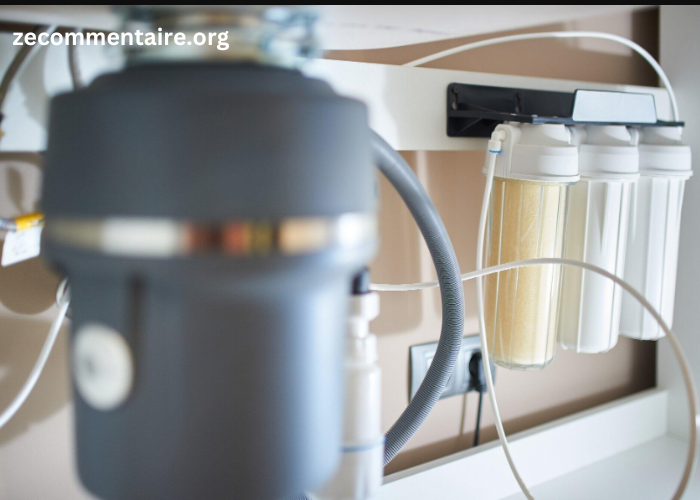Have you ever wondered what’s in your tap water and how it affects your health?
Many people are unaware of the various contaminants that can lurk in their drinking water. Whole house filtration systems can be a great solution to ensure you and your family have access to clean, safe water.
Read on to learn more about these systems and how they work.
Benefits of Filtration
Whole house filtration systems offer many advantages for your home. First, they provide clean water from every tap, not just the kitchen sink. This means better-tasting water for cooking, drinking, and even bathing.
Also, these systems can help remove harmful substances. This includes chlorine, lead, and other chemicals that can affect your health.
Using filtered water can extend the life of your appliances. Removing certain minerals boosts appliance performance, like dishwashers and heaters. This maintenance helps them last longer.
Finally, having clean water can give you peace of mind. You can feel good knowing that your family is drinking safe water every day.
Types of Contaminants
Water can contain many different contaminants. These harmful substances can come from several sources. Some are natural, while others are man-made.
For example, bacteria and viruses can enter water from animal waste or sewage. Heavy metals, such as lead and copper, can come from old pipes.
Chemicals used in farming, such as pesticides and fertilizers, can also seep into the water supply. These chemicals can be dangerous, especially for children and older adults. Chlorine is often added to water to kill germs, but it can create other harmful byproducts.
It is important to know what is in your water. These filtration systems can help remove many of these pollutants, making your water safer to drink and use.
How Filtration Works
Filtration cleans water by removing unwanted substances. Whole-house filtration systems use various methods to achieve this. Commonly used methods include activated carbon filtration and sediment filtration.
Activated carbon filtration traps chemicals like chlorine and pesticides. Sediment filtration removes larger particles such as dirt and rust. These methods work together to improve water quality.
Some systems also use reverse osmosis. This process pushes water through a special filter, removing many contaminants. UV light is another technology that helps kill bacteria and viruses.
Using these filtration systems ensures safe water for drinking, cooking, and bathing. This way, your family enjoys healthy water every day. Clean water is essential for a healthy lifestyle.
Key Components
Whole house filtration systems consist of several key components that work together to ensure clean and safe water. The filter itself is crucial, trapping dirt, chemicals, and various particles. Options like activated carbon and sediment filters are commonly used to achieve this.
The pre-filter captures larger particles before water hits the main filter. This step enhances the performance of the filtration system. The tank also plays a vital role in storing the filtered water for your use.
Lastly, the control valve is important for managing water flow through the system. It allows homeowners to adjust the flow and check the filtration process. Together, these components provide fresh, clean water for your entire home.
Installation Process
Installing a whole-house filtration system is important for clean water. The installation usually requires a professional plumber. They will inspect your home’s plumbing and choose the best spot for the system.
The system is often placed near where the water comes into your house. This allows clean water to flow to all taps.
The plumber will connect pipes to the filtration system and your home’s plumbing. They will ensure everything is tight and leak-free.
After the installation, they will test the system to confirm it works well. Finally, they will explain how to maintain the system, so you get fresh water for a long time.
Maintenance Tips
Keeping your whole house filtration system in good shape is key to pure water. Regular maintenance helps ensure it works effectively. Checking the filters often is important.
Depending on the type of filter you have, you might need to change them every six months to a year. Clean filters catch more dirt and contaminants, giving you safer water.
Another helpful tip is to inspect the system for any signs of leaks or damage. If you notice anything unusual, calling a professional can keep things running smoothly.
Lastly, following the manufacturer’s instructions can help you care for your system. This way, you can continue enjoying clean water for a long time.
Cost Considerations
When thinking about a whole house filtration system, it’s important to consider the costs involved. The initial price can vary based on the type of system you choose.
Some systems can be expensive, but they might save you money in the long run. This happens because clean water can help your appliances work better and last longer.
Installation costs are another factor. Hiring a professional plumber is often necessary, which adds to the total expense.
Common Misconceptions
Many people have wrong ideas about home filtration systems. One common misconception is that they are too complicated to use. In reality, these systems are designed to be user-friendly and need minimal effort from homeowners.
Another belief is that all filtration systems remove the same things. However, different systems work in different ways. Some might filter out certain chemicals but not others.
Many also think that if the water looks clean, it must be safe. This is not true since harmful substances can be invisible.
Choosing the Right System
When looking for the best water filters, consider your home’s needs. First, test your water to see what contaminants are present. Different systems target different pollutants.
Look for brands that match your requirements. For example, Pure Filtration Products, Inc offers a range of options for various needs. If you’re curious, be sure to check out service providers like them.
Think about the system’s size, cost, and maintenance. Ensure it fits your budget and is easy to care for. Choosing the right system helps provide safe and clean water for your family every day, making it a smart choice for a healthy home.
Take Full Advantage of Whole House Filtration Systems Now
Whole house filtration systems can greatly improve the quality of your water. Knowing what is in your tap water is important for your health.
By using these systems, you make sure that every tap in your home provides clean, safe water for drinking, cooking, and bathing. Investing in these filtration systems is a smart choice for a healthier lifestyle.
Are you looking for other helpful content? If so, stay with us and continue reading for more.





